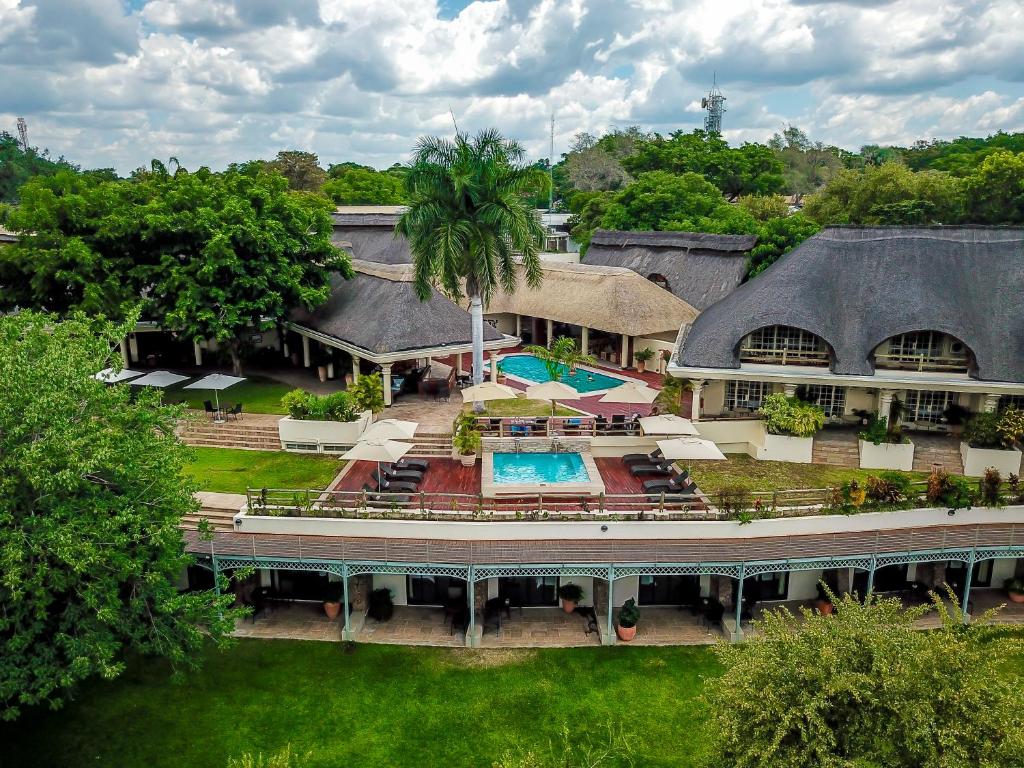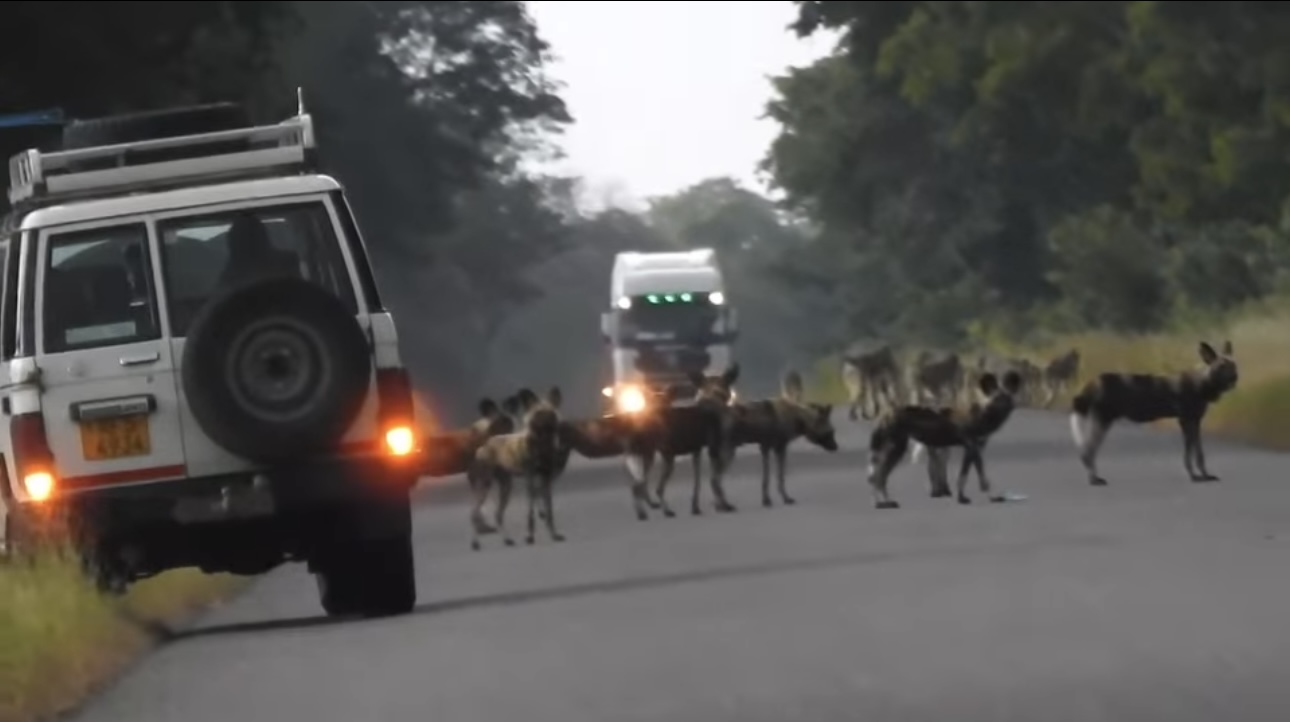BY OWN CORRESPONDENT
The renowned Ilala Lodge Hotel in Victoria Falls celebrated three decades in hospitality at a private event held with longstanding regional tourism partners on October 4.
The family-run hotel hosted 60 regional partners, including travel agents, destination management companies (DMC’s) and industry partners who have supported the hotel in its successful history.
Guests travelled from Cape Town, Durban, Johannesburg, Livingstone, Maun, Harare and Victoria Falls to join the celebrations.
The event took place within the hotels luxurious poolside lounge and commenced with a speech from the hotel owner Jim Brown, who shared his gratitude to industry partners for their support and their contribution to the on-going success and longevity of the establishment.
Brown made particular reference to their loyalty in the past 18 months during Covid-19.
In addition to thanking industry partners, Brown gave his appreciation to committed staff members of Ilala Lodge Hotel.
“Our most important cog in the machinery of a successful hotel is its staff,” Brown said.
“Hospitality is a people business, but the staff and management are by far the most essential ingredient in making for prosperous hotel.”
He also thanked two members of staff who have been with the company since 1991.
“Peter and Basil have been with us since the beginning and to them, and others who are nearing this milestone, we owe a big affirmation of gratitude for 30 years of loyalty.”
Brown attributed the hotel’s accomplishments to remaining relevant, adaptable and flexible while applying a mindset of persistence and perseverance as the hotel steps forward into another chapter and many more years of hospitality success.
An evening of networking and reconnecting with fellow colleagues unfolded, and guests expressed their excitement to Ilala Lodge Hotel for providing the opportunity for industry partners be reunited after months of separation due to travel restrictions.
Ilala Lodge Hotel is ideally located only eight minutes from the Natural World Wonder, Victoria Falls, in Zimbabwe.
The family-run hotel is equipped with 73 stylish and well-appointed rooms, offering the ultimate in comfort and luxury.
The hotel’s history dates back to 1991 where it first began as a boutique hotel with 16 rooms, owned by the Brown family.
In 1994 the hotel expanded to 32 rooms and in 2015 the hotel unveiled its new Deluxe wing bringing it to a total of 56 rooms.
Further developments took place in 2018 with the expansion of the Deluxe wing, growing the hotel to a total of 73 rooms made up of standard and deluxe rooms and suites.
In 2019, Ilala unveiled its most luxurious suite, the Strathearn Suite, named after the hotel founder, Strathearn Brown.
Fashioned with modern and sophisticated décor, the suite is complete with a lounge, kitchen, en suite bathroom, and private balcony where guests can relax in a large spa bath while enjoying world-class views of the spray rising above the mighty Victoria Falls waterfall.
The suite can also be transformed into a spacious family villa known as the ‘Strathearn Family Suite’ through interleading doors with an executive suite and deluxe room.
In March 2019, a new plunge pool was added, providing guest with the option of two swimming pools to relax in during their stay.
An elegant poolside lounge was also completed and decorated with hand-crafted furniture and wall prints representing palms and foliage.
The lounge, in which Ilala’s 30th Celebrations took place, offers guests a calming space in which to relax.
In the last 18 months, the hotel has adapted to face Covid-19 travel restrictions by shifting focus to human resource development.
This enabled staff members to diversify their skill sets and learn new trades within the hospitality industry, for example, kitchen porters became gardeners and front of house personnel assisted with maintenance teams.
The hotel plays a critical role in the growth and development of Victoria Falls community and its team of passionate staff are involved in multiple corporate social responsibility projects.
At the forefront of their efforts is the Ilala Lodge Hotel Green Team, a committee driven to bring about meaningful solutions for more environmentally conscious practices.
Established in 2019, the Green Team has implemented a sustainable waste management initiative presented to the Greenline Africa Trust and the Victoria Falls Recycling Project.
The team continues to support and attend all local events which endeavour to better the future of green development within Victoria Falls.
Other initiatives include monthly town and rainforest clean-ups, community events, fundraisers for local charities and aiding the Pristine Victoria Falls Society – a new community programme to make Victoria Falls the most pristine city in Africa.
In October 2021, Ilala Lodge Hotel was awarded the ‘Environmental Stewardship and Social Impact Award’ by the Environmental Management Adency (EMA) and Corporate Social Responsibility Network Zimbabwe.
The award recognises organisation that dedicate time and resources to the preserving the environment, waste recycling and wildlife conservation.
The hotel has been a Silver Member of the Green Tourism certification programme since 2016, which identifies the commitment of tourism businesses that actively work to become more sustainable.

 Slider3 years ago
Slider3 years ago
 National4 years ago
National4 years ago
 Tourism and Environment4 years ago
Tourism and Environment4 years ago
 Special reports4 years ago
Special reports4 years ago
 Opinion4 years ago
Opinion4 years ago
 National4 years ago
National4 years ago
 National3 years ago
National3 years ago
 National3 years ago
National3 years ago




